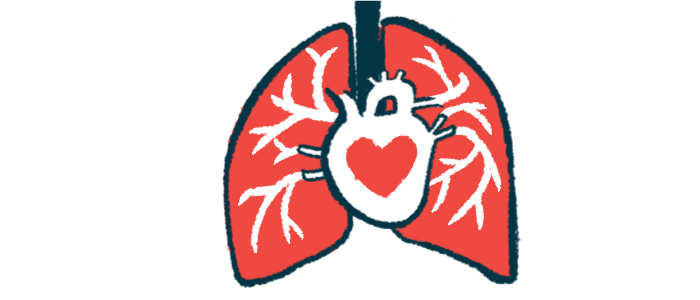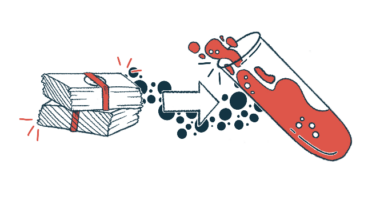Gradient raises €14M in support of ultrasound-based device for PH
New catheter device aims to treat PH caused by left heart disease

Gradient Denervation Technologies has raised €14 million (around $14.9 million) in funding to support the clinical development and testing of an ultrasound-based catheter device for the treatment of pulmonary hypertension (PH).
The minimally invasive catheter device is designed for use in the pulmonary arteries. It delivers therapeutic ultrasound energy to reduce nervous signals that stimulate the narrowing of these blood vessels, which can potentially lower blood pressure and alleviate PH symptoms.
The company’s initial focus will be treating people with PH caused by left heart disease — the most common form of PH. The new funding will be used to support a first-in-human clinical study, launched in Europe earlier this year, as well as early feasibility studies in the U.S.
“Gradient has the potential to significantly improve the care of patients with pulmonary hypertension due to left heart disease, a patient group with a substantial need for better treatment solutions,” Evan Castiglia, partner at Thuja Capital, which participated in the funding round, said in a press release.
“The company is ready to prove the concept of its technology in the clinic, and we look forward to joining … in this exciting journey,” Castiglia said.
Catheter device designed to be minimally invasive
PH is characterized by abnormally high blood pressure in the pulmonary arteries, which transport blood from the heart to the lungs. As a result, the right side of the heart needs to work harder to pump blood and becomes enlarged and weakened.
The most common cause of PH are conditions affecting the left side of the heart. Normally, oxygen-poor blood is pumped from the right side of the heart to the lungs, where the blood takes up oxygen. Then, the blood is transported back to the left side of the heart where it is pumped through the body.
When there is a problem with the left side of the heart, the blood cannot be effectively transported from the lungs to the body. Up to 50% of people with heart failure develop PH, and there are no therapies approved to date for this form of the disease.
Gradient, however, is developing a device that promotes denervation, or the loss of nerve signals the sympathetic nervous system — specifically in the pulmonary arteries. The sympathetic nervous system, which is involved in fight or flight reactions, is known to promote the constriction of most blood vessels, among other functions, in stressful situations.
The catheter device uses ultrasounds to deplete signals from those nerves, which is expected to lower pressure in the pulmonary arteries and reduce further damage to the heart.
Gradient was established in 2020 through a €3.5 million (about $3.7 million) seed funding from Sofinnova MD Start, which provides early-stage financing for clinical companies developing new medical technologies with the potential of improving patient care.
This round of funding now was led by Asabys Partners, via its new fund Sabadel Asabys II, and joined by Thuja Capital and founding investor Sofinnova Partners.
In addition to capital, these investors bring deep expertise and thought partnership to Gradient as we seek to bring our technology to patients.
“The transformative potential we saw in Gradient’s unique technology at the outset is increasingly apparent, reinforcing our early conviction,” said Mano Iyer, venture partner at Sofinnova Partners, adding, “We are excited to work with an expanded investor base to make this technology available for all patients with heart failure and pulmonary hypertension.”
Gradient, for its part, welcomed its new investors.
“In addition to capital, these investors bring deep expertise and thought partnership to Gradient as we seek to bring our technology to patients,” said Martin Grasse, the company’s CEO.








